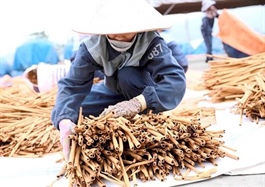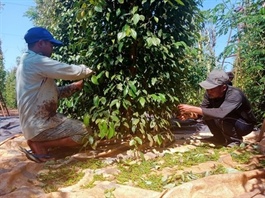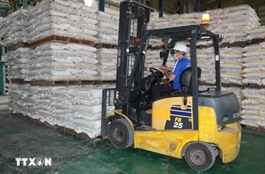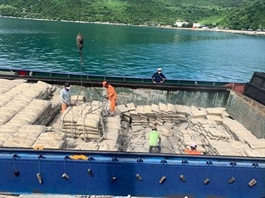Rice export hits a fresh record of $5 billion
Rice export hits a fresh record of $5 billion
Việt Nam has exported 8.05 million tonnes of rice from the beginning of this year to November 15, to earn a historic record value of more than US$5 billion, according to statistics of the General Department of Customs.
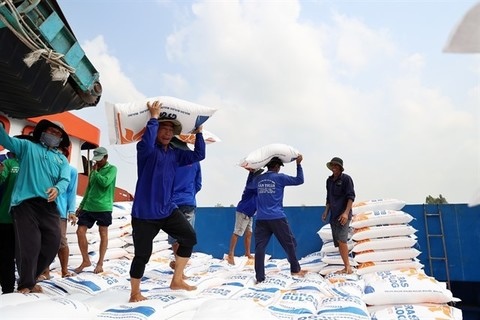
Rice packs loaded for export. For the first time, Việt Nam's rice export value hit a new record of more than $5 billion. — VNA/VNS Photo Hồng Đạt |
Compared to the same period last year, rice export increased 9.16 per cent in volume and 21.49 per cent in value on high rice prices which averaged $626 per tonne, up 12 per cent.
The Philippines is the largest rice import market of Việt Nam, accounting for 46.93 per cent of the export volume, followed by Indonesia with 14.02 per cent and Malaysia with 8.7 per cent.
According to Việt Nam Food Association (VFA), the price of Vietnamese rice remains the highest in the world.
Since the end of October after the world largest rice exporter, India, lifted the ban on regular rice export, the rice prices in the global market have fallen sharply. The VFA’s data showed that each tonnes of 5-per-cent broken rice from Pakistan and Thailand dropped by around 5-10 per cent to around $457-490.
However bucking that general trend, Vietnamese 5-per-cent broken rice has increased again since November 2021 to reach $510-520 per tonnes at the end of last week, helping Việt Nam to be among the world’s largest rice exporters.
Despite setting a historic record rice export value, Việt Nam’s rice import soared strongly by 73 per cent, making Việt Nam the third largest rice importer in the world after the Phillippines and Indonesia.
In the first ten months of this year, Việt Nam imported 3.2 million tonnes, worth $1.2 billion.
Looking ahead, there are factors which might affect rice exports next year.
According to Coordinating Minister for Food Affairs Zulkifli Hasan, Indonesia, Việt Nam's second-largest rice export market, may not import any rice in 2025.. He added that the country aims to achieve rice self-sufficiency before 2027, reducing the need for rice imports.







